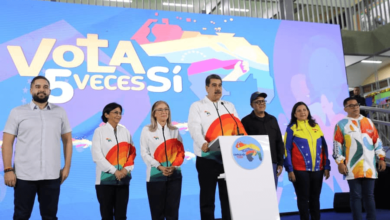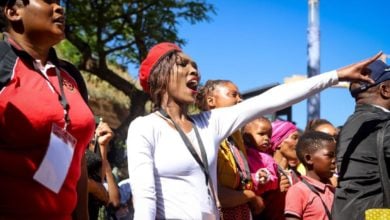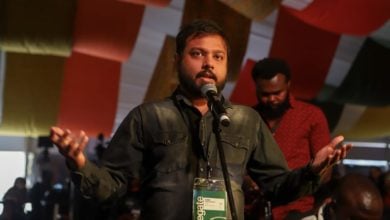On March 26, local activists and workers convened at the Cavalry United Methodist Church for a celebration of the life, works and legacy of the late Venezuelan President Hugo Chávez. The commemoration was initiated by the International Action Center and co-sponsored by a wide range of local activists and organizations.
Just a few months prior, there had been a gathering at the same church to profess solidarity with Chávez and the Venezuelan people’s Bolivarian Revolution during the time of his illness. What marked that event was the understanding that if he were to pass, activists had full confidence in the Venezuelan working class to uphold the gains of the revolution and carry forward in the event of his passing. Now in the face of this reality, that same message was echoed throughout the evening.
March 26 was also the 19th anniversary of when Chávez was freed from prison after the 1992 attempted coup. Chávez would later be lifted up democratically by the people of Venezuela to be their chosen leader. Speaker Dr. Anthony Monteiro stated that out of the convergence of “this heroic personality, and the yearnings and aspirations of the Venezuelan people, came […] a revolutionary among revolutionaries.” As such, “when they raised him up, they were raising themselves up.”
The poor and working class in Venezuela would go on to greatly benefit from an array of social programs and nationalizations of key industries—steps towards socialism—initiated by the leader they had selected. The Venezuelan working class would prove time and time again its unwavering resolve and commitment to the revolution by re-electing and defending Chávez’s presidency from an attempted CIA-backed ouster.
Walter Smolarek of the Party for Socialism and Liberation expounded on the broader point that the legacy of Chávez’s role in the revolution “wasn’t just about winning elections”; rather: “The real work of the Bolivarian Revolution happened in the construction of an alternative to the existing structure of the existing capitalist state. We see today in Venezuela a completely transformed country.” Smolarek went on to explain that in the communal councils, social missions, and new social programs, “we see real units of people’s power, [which] rely on the participation and activism of the people to really transform the situation that they live under.”
The commemoration was not a somber occasion. After the speakers had concluded, attendees stood for a minute of applause rather than a moment of silence. Participants were inspired by the transformation of the Venezuelan people as a result of their ongoing revolution, in which Chávez played such a vital role.
Workers in the United States can draw lessons from the Venezuelan experience to sharpen our struggle at home. As Smolarek proclaimed, “We in the United States can commit the ultimate act of solidarity with the people of Venezuela and the oppressed people of the world by having a revolution right here in the heartland of world imperialism.”





